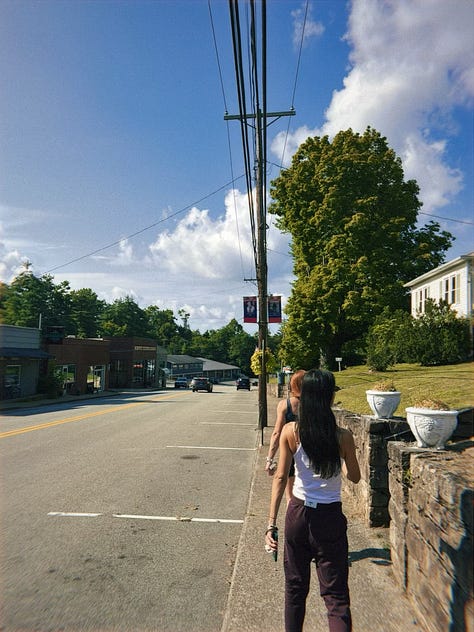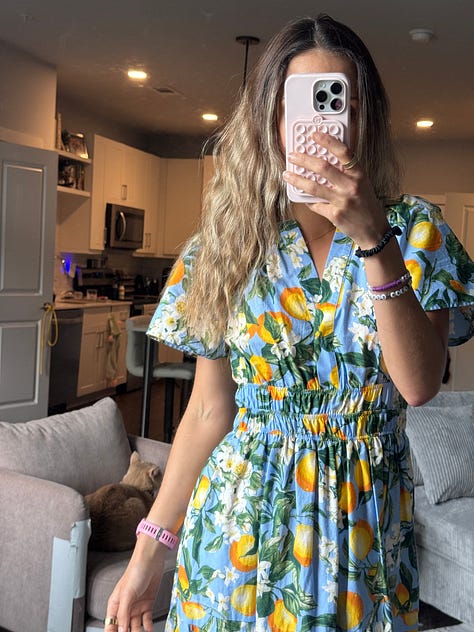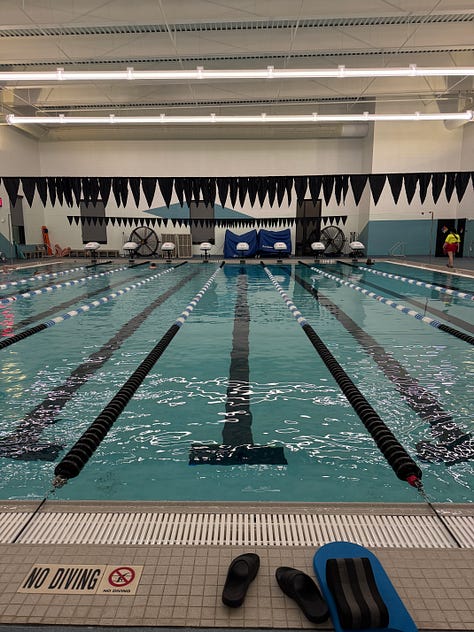Sometimes the Hard Thing Is Not Doing the Hard Thing
injury, stillness, and what this week has been teaching me.
Injury has a way of testing more than your body—it tests your patience, your self-worth, and your ability to sit still. This Sunday, I want to shed light on how I am learning that sometimes the hardest thing isn’t pushing through…it’s stepping back.
____
Hi Substack friends,
It’s Sunday mid-morning as you’re reading this.
But as I write it, it’s Thursday—a few days before it hits your inbox.
If you read my Substack on Tuesday (oops—it was supposed to be Wednesday, but I mis-scheduled it… 🙃), you might remember I said I wouldn’t know by the time that piece went live if I was running again.
I’m still not running.
The past couple of days have been up and down. And I wish I could sit here and be resilient—find the bright side and tell you, “It’s fine, just a blip. Chicago will still be everything I imagined.”
But I can’t.
What I can tell you is that rest feels unnatural to me. (Not exactly shocking to many of you reading this in a similar lifestyle.) I can write endlessly about the importance of listening to your body—but actually doing it? That’s the harder part.
Last week, I wrote about the inner critic. About pausing instead of pushing when the pain hits. I think I foreshadowed my own week... That voice inside—the one that pushes—is important.
Motivation fades, but discipline stays.
We need it.
It’s what gets us out the door when the couch feels too inviting. It’s what helps us say yes to opportunities when fear wants to keep us safe. It’s what pushes us onto the start line when we’d rather hide in the crowd.
But discipline can turn into denial when we never learn to stop.
Sometimes the challenge is sitting still. Being okay with the mundane. Choosing to rest—not because we’re lazy, but because we know what overuse can take from us.
This week has been a humbling reminder that I am more than my schedule. That I’m not a machine (as much as some days I wish I could be).
Logically, I can make sense of this injury. I can explain to you what I’ve asked my body to do over the past year, how the constant “go, go, go” was bound to catch up with me, and how every athlete eventually gets injured. I can tell you, “It’s just a bump. There’s more to life than running.”
But emotionally? That’s harder to reason with.



My emotional brain is the one crying in front of my PT. Crying in the car as I drive to pick up my walking boot. Crying to my coach. Crying to my friends on the phone or ignoring their phone calls to check in (sorry). TBH. Just a whole lot of tears. And feeling a pit in my stomach when the sun finally comes out after a week of rain—and realizing I can’t run in it.
At least two weeks with no running, minimum. And before I even think about lacing up, I have to be able to jump on my foot and wait 24 hours pain-free.
The deeper challenge hasn’t just been accepting rest—it’s been untangling my sense of identity from my mileage.
For the past year and a half, “runner” has been one of the clearest, loudest parts of who I am. I’ve built my entire lifestyle around it. And right now, I’m realizing my worth can’t be measured in splits or weekly totals or catching up with a friend during a long run.
I am trying to hold on to the truth that: I can have a meaningful conversation at 6 p.m. instead of 6 a.m.—and it’s still worth protecting. That an 8:30 bedtime can feel like a luxury, not a sacrifice. That setting a timer to simply sit still can bring more clarity than any other workout ever could. (does this mean I am going to be writing more?? 🤣)
Maybe this isn’t just a rest lesson.
Maybe it’s an identity lesson—about who I am without the thing I’m used to leaning on, and how I can still recognize myself when it’s gone.
And maybe most of all—it’s reminded me to stop assuming. When someone cancels. When they forget to follow through. When I’m not included. Instead of making it about me, I’m learning to ask: What might they be going through right now?
It’s such a simple question. But it changes everything.
A Prompt For You:
What parts of your identity do you feel tied to what you do—and who would you be if you couldn’t do them for a while?
With grace,



